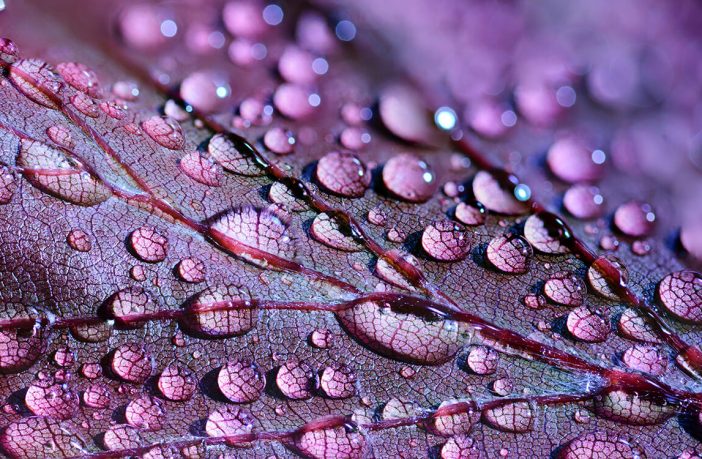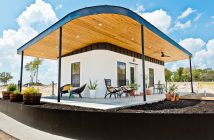Day Zero is currently estimated to be the 9th July 2018 according to the latest report from the City of Cape Town. The prolonged drought in Cape Town has highlighted the need for homeowners not only to save water but also to consider alternative water supply systems. Two such options exist in the form of sinking a borehole or recycling from grey, rain or pool water, but which one is more viable?
Borehole Water for Home Use:
Sinking a borehole involves drilling a long, narrow hole, deep underground (sometimes 100 meters or more) to tap into subterranean water tables. Water is then pumped to the surface. Sinking a borehole, however, does come with its risks. There is legislation that restricts the use of boreholes for home water use as they disrupt water tables. Ben Steenkamp, a director at Durban-based T&T Drilling, which specialises in borehole drilling in KZN, Cape Town, Mozambique, and Namibia, said “Obviously with the drought at the moment, there is a huge demand for boreholes. But we are also seeing a drop in the water table as a result of the drought”.
He adds that “in Harding, we used to dig 40m to 60m for water, but we are now digging 80m to 100m. On the North Coast where we once could drill 80m to 120m, we have to now dig 150m.” Therefore legislation has been introduced that outlines that your local municipality may need the borehole to be registered. This depends on the amount of water you use, if it is deemed excessive you may need to get a license. Be sure to check with your local municipality before sinking any borehole.
Drilling a borehole can be an expensive and arduous task. The driller does not know what lies below so it is a bit of a gamble. There is also no guarantee of finding water or if the water is potable (drinkable). Once water is found, it needs to be tested to determine if it is potable or if there is high metal or lime content as this may erode your house piping. The process is invasive and noisy. Typically a large truck is stationed at the drilling point in a homeowners yard.
Allow for up to two weeks for the installation which can cost anything from R40000.00 to over R100000.00. Note that the borehole is dependent on the water supply and therefore if the water source runs dry then the borehole is rendered useless.
The other options are to consider grey or rainwater recycling or pool water recycling:
- Grey water recycling within domestic homes is the process of taking used water from baths, washing machine, showers and bathroom basins, filtering it and then storing it for re-use. It does not include any wastewater that comes into contact with food.
- Rainwater harvesting systems substantially reduce consumption of potable water by storing water collected from rainfall, using the roof as the collector system.
In both rain and greywater systems, the harvested water can be used for flushing toilets, watering gardens, topping up the pool and general cleaning.
- Pool water recycling involves storing backwash water for top-up purposes.
Here is a breakdown of the three water conservation systems installed at homes plus their average cost. Please note that price ranges submitted exclude VAT and are based on industry average pricing which includes installation:
Grey water recycling:
- Entry level 50 Litre system. This system will recycle grey water from baths, showers, hand wash basins and clothes washing machine for irrigation. It’s a hands-on system and cannot be connected to your irrigation system. It typically comes with a 30m long high-pressure hose and sprinkler. You have to move the hose around daily and the system needs weekly cleaning. It can be installed anywhere; in a walkway, driveway, flower bed, wherever – it depends on your house design.
- Entry level systems with outlets close to one another with not too much paving between outlets, one hose, and sprinkler – approx. R 17 500 Price goes up if you add multiple outlets.
- For a bigger greywater recycling system for irrigation that has larger storage capacity (500 to 1000 liters) and is connected to your irrigation system prices ranges between R 60 000 – R 80 000. The size of storage tank determines the volume of grey water that will be recycled.
- For a more advanced system that can reticulate grey water back into the house for toilet flushing and laundry washing, in addition to garden irrigation, costs vary from R90 000 to R12000.00
- The recycling of grey water through a wetlands system. Prices vary depending on the amount of grey water generated and property/wetlands size. R 40 000+
Rainwater Harvesting
- Two 750L rainwater harvesting system is your basic entry level system with downpipe e fitted directly into the tank from the roof will cost R8000.00. Downpipe fitted with a rain filter etc. @ approx. R10 000. Two x 750L interlinked to increase the storage capacity to 1500L installed with a submersible pump, rain filter etc @ approx. R 18000.00. Please note that with these systems, you bucket to water your garden manually.
- For the larger 2 500L tank installed right next to the house with a small submersible pump – gotta love the submersible pumps for aesthetics and security reasons, expect to pay R 14 000. It’s simple and straightforward – you connect a hose or sprinkler to the tank and hey presto! To extend the system for either toilet flushing for clothes washing machine (one application per tank), the price goes up to R 22 500. You’ll be surprised how much water you’ll save …and money.
- A bigger tank 5 000L installed anywhere in the garden, harvesting from one side of the house (two or three downpipes), also installed with a submersible pump (can be bigger) for approx. R 26 000. Note – big tanks can be an eyesore.
- For the biggest system harvesting from you’re the roof, install two or three 5000L tanks (depending on the size of the roof) and link the harvested water to your irrigation system expect to pay between R 50 000 – R 75 000. It really depends on many factors… Stormwater runoff can also be harvested and used for this application.
- For a complete off the main water supply system is the best way to go but it is also the most expensive. Water harvesting is done directly from the roof, tanks installed anywhere for water use inside and outside the house. The water is connected to your municipal supply which means during the rainy season you will use rainwater and during the dry winter season you will switch over to municipal water. The system is designed in such a way that you will always have backup water for those water outage days, winter or summer. Prices range from R60 000 for a 5000L tank system to R120 000 for a 15000L system
Pool Water Harvesting
- This is a use even less incentive to add to either a rain or grey water system. The recycling of backwashed pool water for topping up purposes again starts at around R8000 for a 750L tank.
So there you go – borehole or water recycling options? Each house is different in terms of design plus water use needs. Recycling your own wastewater can be tailored to your budget and will ensure that when the taps run dry; you have stored water to continue a reasonably comfortable home living experience. Sinking a borehole is risky and can be an expensive task to undertake without a guarantee on its lifespan, as it relies on the water source below. Boreholes can also upset underground water tables.
The risks associated with grey and rainwater recycling is less than that of sinking a borehole, as well as being much easier to install plus more environmentally friendly. As such it is fair to conclude that grey, rain and pool water recycling would be the best option if one is looking for an alternative water system.
Author: Bryan Groenendaal











